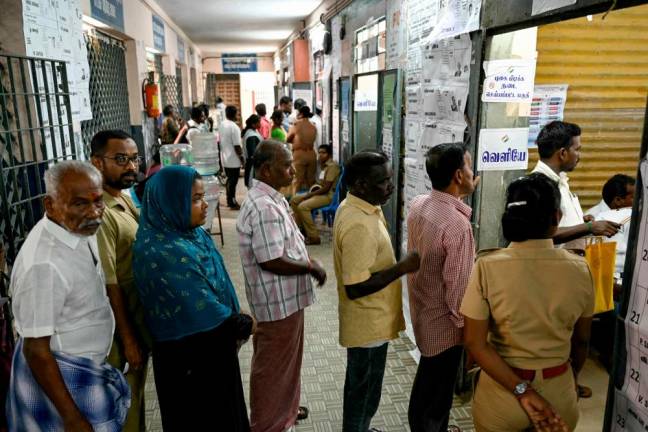PUTRAJAYA: National Economic Action Council member Tan Sri Rafidah Aziz today suggested the formation of of a special task force with combined expertise including academics to think ahead and come up with pre-emptive measures to deal with external dynamics.
The former International Trade and Industry Minister said the government should have learnt from its past experiences including the 1997 Asian financial crisis, double-digit inflation in the 1970s, quick shift to industrialisation in the 1980s and the 2008 global financial crisis.
Asked whether Malaysia’s economy is diversified enough to buffer any impact, Rafidah said: “Do not talk about diversified enough ... I mean in whatever possible measures, who knows it may spill over to other areas, financial and so on. It’s not for me to say as I have not done the study, but you have experts doing this, should be doing it. Let’s do it now.”
“Form special task forces that combine expertise including academics for example, where you begin do think ahead, pre-emptive measures. That is what I would like to propose. We cannot just have the Finance Ministry, Bank Negara Malaysia or Economic Planning Unit (EPU) acting independently. There must be a coherent strategy moving forward in the scenario of a volatile and incomprehensible environment,“ she said.
Rafidah was speaking to reporters after her keynote address at the Perdana Discourse Series 21 titled “Factors Impeding Malaysia’s Economic Progress and How to Overcome Them”, at Yayasan Kepimpinan Perdana here today.
Rafidah said Malaysia’s lessons from the past should be referred to as a way forward, and all professional policymakers should now begin to think and analyse the possible impacts from external environments as it would also impact the country’s formulation of new policies as well as the strategy of the business sector.
“Once we are able to pre-empt possible outcomes and impacts, then we can start collaborating with stakeholders to do what it takes, and it requires collaborative efforts,“ she said.
Rafidah said there is no point in drawing a blueprint which will be constrained by external dynamics, citing the example of the ongoing tariff war between the US and China, whereby the country has to look at the impact not just from the figures but also on which sectors could be strategised.
Asked on the contingency measures in the 2020 Budget, Rafidah said: “Of course it has to be. It is not contingency, it is more preemptive. You know that should this happen, we are prepared. We have been caught in the past in such a scenario and we did ad hoc preparation, but an ad hoc preparation that worked.”
On Monday, Finance Minister Lim Guan Eng said the 2020 Budget, which is scheduled to be tabled in Parliament on Oct 11 this year, would have contingency measures in the event that the trade dispute escalates or worsens.
Rafidah said Malaysia has the foundation to be resilient to any external headwinds due to its past experiences in dealing with crises, and new sectors need to be triggered for future economic growth including getting ready for the Fourth Industrial Revolution so as to put Malaysia on an upward trajectory.
She also said policymakers must not bow to unnecessary pressures to tweak policies to please certain groups who have motives other than national development.
“That is no way to govern the country. You do not govern to please groups based on religion but to please everybody and not a small group,“ she said. — Bernama













